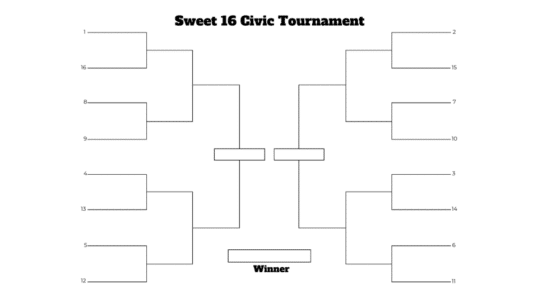The Interactivity Foundation (IF) engages in a number of different activities. We help faculty across the country integrate a student-centered discussion model into their classrooms to transform how students learn within the university classroom. The skills students master in these classrooms, such as thinking critically, working as a team, assessing the validity of information, and learning to facilitate useful discussions, are exactly what the modern work world is hoping students trained in the liberal arts tradition will have. We also help groups of citizens develop policy possibilities for public discussion around numerous topics, including civil rights, genetic technologies, the promotion of democracy, food, and higher education. We call these project or sanctuary discussions, and they can last from 18 – 24 months. The result of each of these discussions is a reports designed to encourage discussion by other groups of citizens. For our founder, Jay Stern, these short-term public or “citizen discussions” that focus on a particular topic using these reports are at the heart of IF’s mission.
Citizen discussions incorporate 8 – 10 participants who may meet for one or two longer meetings, lasting as long as 3 – 5 hours or, more typically, may meet weekly or bi-weekly for a series of 3 – 4 shorter meetings. The meeting schedule may emerge to meet the needs of a particular group of citizens who will participate in a discussion or it may help to select the group of citizens who will participate. For instance, some citizen discussion leaders use a format such as Meetup.com to announce a series of meetings that will meet on a scheduled set of evenings. Participants in the Meetup group then sign up to participate if they are interested in the topic and available to meet for all (or at least most) of the scheduled meetings.[1] Other citizen discussion leaders may personally recruit acquaintances or friends-of-friends to participate in a discussion. While a discussion leader might know one or two participants reasonably well, most find that discussions work better if participants are relatively unknown to the discussion leader. Some discussion leaders have approached nursing homes and retirement communities, churches, Rotary clubs, and parent-teacher groups to recruit participants for a discussion. Any organization that might either enjoy engaging in a discussion or might be interested in discussing a particular IF report could be approached, but it is not so useful to try to engage with a pre-existing group in which there is a leadership that holds a strong view about either what ideas are “appropriate,” how ideas should be discussed, or who is considered suitable for participating in a discussion.
The IF approach to citizen discussions tends to be a very open one. We are interested in creating citizen discussions wherein people can truly explore ideas. Ideal participants are those who are willing to play with ideas. It can be very useful and interesting to include as wide a range of participants, in terms of race or ethnic background, social class origins, gender or sexual orientation, age, and political persuasion. What is crucial, however, is to avoid zealots—people who might want to promote one single idea or point of view and/or “true believers” who cannot even entertain a different point of view. Optimistic people tend to work best as it can be very discouraging to have someone in the group who constantly tries to shoot down any idea with a “that could never happen.” Finally, it is best to be wary of including folks who seem to need attention or who want to be the boss. Both of these kinds of participants require a lot of management in a discussion, and be warned that some topics will tend to attract people who want to share their personal experiences (for instance, our depression reports and probably our food and higher education reports may be more likely to attract such individuals). While one will often never know exactly what conversational dysfunctions might emerge within a particular grouping of citizens, such challenges are exactly what makes one a more capable facilitator, so once the group is formed, consider it a learning experience if such a challenge does emerge. The job of the facilitator is to ensure that an idea is explored from as many angles as possible—as well as from a couple of other angles that seem impossible according to the current social norms and structures. Nearly any difficult participant can be managed and, if worse comes to worse, you can always ask that person not to return for the rest of the discussion series.
The most crucial aspect of the citizen discussion beyond recruiting a dynamic pool of participants is the meal. Jay Stern was quite insightful in realizing that sharing a meal creates a climate in which people are inclined to be more polite and less vitriolic. Meals help people get to know one another much more quickly. Participants start to make small talk, find things they share in common, and thus feel more positive, inclusive, and enthusiastic as you guide them through a discussion of the topic outlined in the report. Especially helpful with regard to venue is to try to find a local restaurant with either a private dining room or a willingness to serve a set menu to a small group on a night during which they are not usually open. Chinese restaurants tend to have private rooms, and any food that involves a Lazy Susan at table center and dishes designed for sharing makes for much quicker group bonding. If it is necessary to pay a nominal fee for the room, IF is willing to cover this. Many restaurants will waive this fee for a non-profit group or require a minimum charge that will easily be met when entertaining a group of 8 – 10 people. Some discussion leaders have alternatively found a room at a church, library, or other such space that is willing to allow sandwiches or the like to be catered for the group.
Finally, a word about our reports: our reports provide some policy possibilities that the sanctuary group felt citizens would find interesting to discuss, but a particular citizen group will be drawn to some possibilities more than to others. Discussion leaders, who include IF Fellows, faculty who have taught our classes, and citizens who have participated in our discussions and have subsequently been trained to lead our citizen discussions, review the report their group will be discussing and think about which possibility might be most interesting to that particular group. It is useful to start with that possibility—or even a more general discussion of people’s experiences with the topic—just to get the group talking. If you can get the group talking at the first meeting, questions will naturally emerge that will both engage the group and lead it forward into some of the other possibilities included in the report. Some groups will even want to create their own possibility by the end of the discussion, which is fine. Please send such creative productions back to IF. Definitely do not feel that you must cover all possibilities—nor that you must “stick to the text.” Some groups may be less literate and thus not so inclined (or even able) to read the possibilities. It can be helpful to figure out other ways (including pictures, a short story, or even a song) to assist such a group in creating a frame of reference that contextualizes what the possibility is trying to say. The main idea is that the group be able to discuss the concept or idea that is reflected in the possibility. If you are meeting with a group that is outside your cultural frame of reference, it can be helpful to include an insider from that group to assist with both recruiting participants and, later, interpreting the possibilities for the group.
By the end of the discussion, participants will almost certainly ask why they are having this discussion—what they are meant to do with this information. IF is a non-partisan/non-advocacy organization, and our intent is simply to provide a space in which citizens can think about emergent policy realms in a civil, open, and exploratory manner. Our founder believed that the simple act of discussing can help citizens to clarify what they may or may not want to do with regard to the area of concern.
As a final note: please encourage your participants to complete the online survey asking about their experiences participating in the IF discussion. The link to this survey can be found towards the end of your citizen discussion guidebook. It helps to remind your group of the survey and the importance of their feedback at the last meeting, to send them away from that meeting with a handout inviting them to participate in the survey and including a link to the survey, and to then send them a follow-up email reminder with an embedded link to the survey a few days later. We are an experimental organization, and so we value this feedback immensely as we work to improve upon both our content and our process. If your participants do not have ready computer access by which to complete the survey, feel free to have them fill out paper copies and then send these back to IF’s Parkersburg office, where they will be entered into Survey Monkey. We find that a higher complete rate of hand-written surveys is achieved if you say, “come on over to the pub and I’ll buy you a beer when you’re done.”
[1] It is important that attendance be reasonably consistent, so a would-be participant that can only make one or two of a scheduled four meetings is asked to wait for a future discussion series that better fits his or her schedule.



